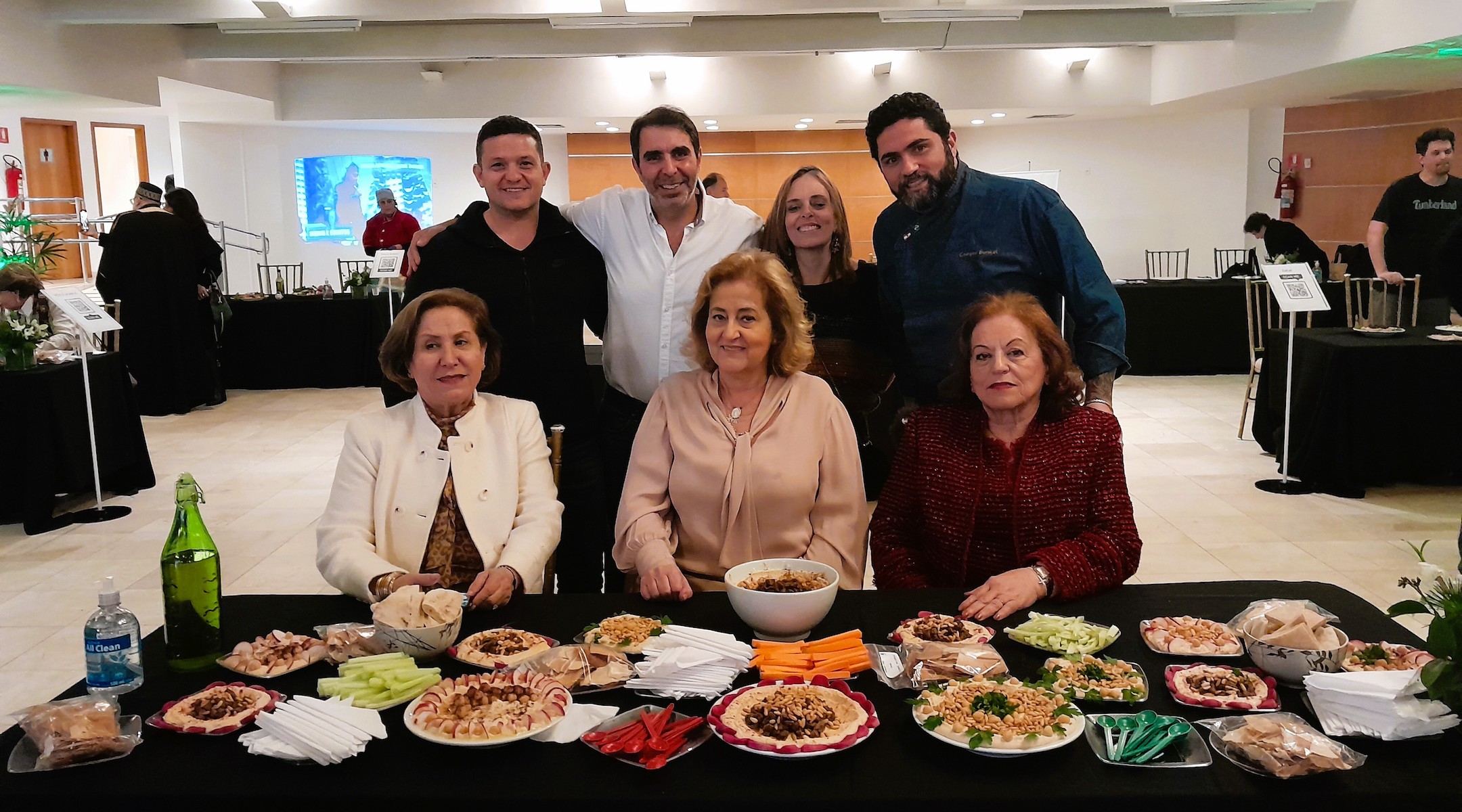Brazilian Jews and Arabs hold hummus championship to celebrate coexistence — and food
Ariel Krok, one of the event’s organizers, compared the contest to a ‘soccer friendly match’

A team of three Christian Arab Brazilians, seated in front, won first place at the inaugural Abrahamic Hummus Championship in Sao Paulo, Brazil, Sept. 21, 2022. (Courtesy of Hebraica Sao Paulo)
SAO PAULO (JTA) — Brazilian Jews, Christians and Muslims celebrated their peaceful coexistence in Latin America’s largest nation with a competition centered on one of the Middle East’s signature foods.
The Hebraica Jewish club in Sao Paulo organized and hosted an inaugural Abrahamic Hummus Championship last Wednesday, timed to the United Nations’ International Day of Peace. Around 150 people attended the event, and yarmulkes shared the room with keffiyehs and other types of Arab scarves.
Ariel Krok, one of the event’s organizers, compared the contest to a “soccer friendly match.” Brazil is home to nearly 10 million people of Arab descent, the largest such population in the Americas, while over 100,000 Jews call Brazil home, including around 60,000 in Sao Paulo.
Team Sahtein, composed of three Christian Arab women, was declared winners by the technical jury. A popular jury of participants gave the title to a group of Christian Arab men. Both teams represented the Mount Lebanon club of Sao Paulo.
“It is an incredible chance to exchange ideas, experiences, and contacts. Together, making hummus, making peace, making a better future,” added Krok, an inter-religious activist who is a member of the JDCorps delegation, the diplomatic arm of the World Jewish Congress.
Jack Terpins, the Brazilian president of the WJC arm in Latin America, referred to the event in an article he published on Sunday to mark Rosh Hashanah.
“Bringing Jews, Muslims and Christians around one of the most popular and present dishes on the tables of the Middle East served to refine the relations between the three groups and expand the dialogue between them,” Terpins wrote in Folha de S.Paulo, Brazil’s most influential daily newspaper.
A similar event was held in Buenos Aires in 2017.
This article originally appeared on JTA.org.
A message from our CEO & publisher Rachel Fishman Feddersen
I hope you appreciated this article. Before you go, I’d like to ask you to please support the Forward’s award-winning, nonprofit journalism during this critical time.
We’ve set a goal to raise $260,000 by December 31. That’s an ambitious goal, but one that will give us the resources we need to invest in the high quality news, opinion, analysis and cultural coverage that isn’t available anywhere else.
If you feel inspired to make an impact, now is the time to give something back. Join us as a member at your most generous level.
— Rachel Fishman Feddersen, Publisher and CEO